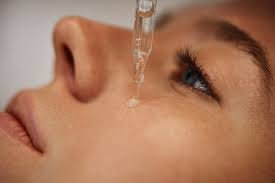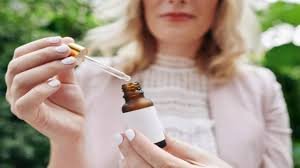
Retinol is often known as the “gold standard” of skincare. It helps reduce fine lines, treats acne, evens out skin tone, and increases collagen production. But as summer arrives, bringing with it strong sun and heat, many people start to ask the same question — is retinol safe to use in summer? Or should we stop using it until the cooler months return?
To clear up this confusion, we spoke to a certified dermatologist, who shared expert advice and simple tips. In this article, you’ll learn whether you can use retinol in summer, how to avoid skin damage, and how to include it safely in your skincare routine.
Retinol is a Vitamin A derivative. It works by speeding up cell turnover, which means it helps your skin shed dead cells faster and replace them with new, healthy ones. Over time, this process leads to clearer, smoother, and younger-looking skin. However, retinol also makes your skin more sensitive to sunlight, which raises concerns about its safety during the summer months.
People worry about using retinol during summer because of stronger UV rays, increased sweating, and more time spent outdoors. Using retinol without protection can cause sunburn, redness, and irritation. That’s why some people stop using it when the weather gets hot. But is that necessary?
According to the dermatologist, you don’t have to stop using retinol in summer, but you do need to be careful. You must make smart changes to your routine and take extra steps to protect your skin. The most important rule when using retinol in hot weather is to always use a broad-spectrum sunscreen with at least SPF 30. This protects your skin from harmful UV rays that can cause sunburn and dark spots. You should apply sunscreen every morning, even on cloudy or rainy days.
Another important point is to use retinol only at night. Daytime use can increase the risk of sun damage. Applying retinol before bed gives your skin time to absorb it without being exposed to sunlight. If you are new to retinol, it is better to start with a low-strength formula like 0.25% or 0.3%. This allows your skin to adjust slowly and reduces the chances of irritation. As your skin builds tolerance, you can gradually increase the strength if needed.
During summer, it is best to use retinol only two to three times a week instead of every night. This gives your skin time to rest and recover, especially if you are also exposed to heat and sun during the day. Moisturizing your skin after using retinol is essential. Retinol can cause dryness and peeling, and the summer heat can make that worse. A good moisturizer helps keep your skin balanced and calm.
Avoid using other harsh skincare products with retinol on the same night, such as products containing AHAs, BHAs, benzoyl peroxide, or Vitamin C. These can increase irritation when combined with retinol. Stick to gentle cleansers and soothing moisturizers when using retinol.
Some people need to be extra cautious when using retinol in summer. If you have sensitive skin, eczema, or rosacea, speak to a dermatologist before using retinol. If you spend a lot of time outside for work or play, it’s better to reduce usage or skip it temporarily. Pregnant and breastfeeding women should also avoid using retinol unless approved by a doctor.
Using retinol without proper care in summer can lead to sunburn, redness, and dark patches. This is the opposite of what retinol is supposed to do. That’s why sun protection is absolutely necessary. Never skip sunscreen, and try to stay indoors during the peak sun hours from 10 AM to 4 PM.
If you’re still unsure about retinol, there are gentler alternatives you can try. Bakuchiol is a natural option that offers similar benefits without the side effects. Niacinamide helps with acne, redness, and uneven tone, while peptides support collagen production. Even Vitamin C, used only in the morning, can brighten and protect your skin during summer. These ingredients can be part of your skincare routine if you prefer to pause retinol.
Interestingly, retinol can help with summer skin problems such as acne caused by sweating or clogged pores. It can also help fade sun spots and correct uneven skin tone from past sun exposure. So, when used correctly, retinol can still be a valuable part of your summer skincare routine.
If you’re planning a vacation to the beach or a sunny location, the dermatologist recommends pausing retinol a few days before and after your trip. Focus on hydrating products, sunscreen, and calming ingredients like aloe vera during this time to prevent irritation.
The dermatologist emphasizes that retinol is not the enemy in summer. It simply needs to be used with care. You must be patient and listen to your skin. If you notice peeling, dryness, or irritation, take a break or reduce the frequency of use. Don’t rush or overdo it.
According to the expert, “Retinol is a powerful skincare ingredient with many long-term benefits. Don’t be afraid of using it in summer. Instead, use it wisely, wear sunscreen daily, and be consistent. Healthy skin is all about balance and care.”
You can use retinol in summer as long as you take the right precautions. Apply it only at night, wear a high-SPF sunscreen, avoid mixing it with harsh ingredients, and always moisturize. If used correctly, retinol can continue to improve your skin even during the hottest months.If you are still unsure, talk to a dermatologist to build a skincare routine that suits your skin type and lifestyle. Remember, skincare is personal. What works for one person might not work for another. But with the right steps, retinol in summer can still give you glowing, healthy, and youthful skin.































